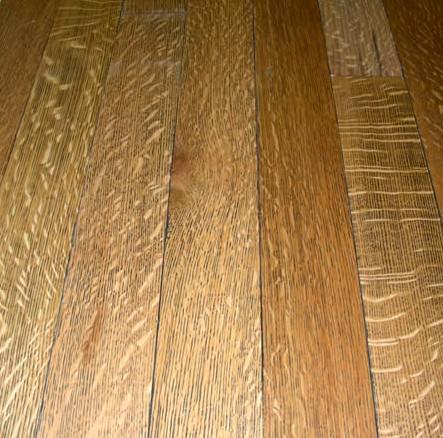A hardwood flooring nailer is a tool used during the installation of wood floors. It may also be used to secure laminate or engineered flooring. Compared to traditional hand nailing techniques, the hardwood flooring nailer allows installers to quickly and easily secure wood flooring to the subfloor below. Most professional installers own at least one of these devices, while homeowners or casual users may rent a hardwood flooring nailer from a home improvement or hardware store.
While the design of each hardwood flooring nailer can vary, most utilize the same basic operating principles. Users load the nailer with the correct nails or staples based on the type of floor being installed. One end of the nailer fits over the edge, or lip, of each floor board. As the user hits a handle or button on top of the nailer, it forces the device to insert a nail into the floor board with tremendous force, driving it deep into the wood. Many of these tools are designed to place the nail into the tongue on the edge of the board rather than into the face of the flooring.

Installers can choose from three basic types of hardwood flooring nailer. Manual units are the most affordable, but also require the most physical strength to operate. Electric models rely on an electric motor, which means they require extension cords and power outlets nearby. Pneumatic models provide the greatest accuracy and power. These units require an air compressor, which may impact their portability and convenience.

A hardwood flooring nailer provides many advantages to floor installation crews. These devices line up each nail or staple perfectly so that they will be inserted into the wood at the correct angle. As it nails, the nailer also forces each plank tightly into the adjacent plank to create a stable and secure floor. These tools make it easier for novice installers to properly secure a hardwood floor, and help to reduce installation errors. Even for skilled crews, these machines greatly speed up the installation process and cut overall labor costs.
When choosing a hardwood flooring nailer, buyers should take the time to choose the right unit for the job. Users should find a machine capable of holding the specified nails or staples required for the project. It's also important to find a unit that's easy to operate without excessive physical force. Finally, buyers should look for a nailer that's lightweight and portable enough for each project, but still capable of supplying sufficient nailing power.
